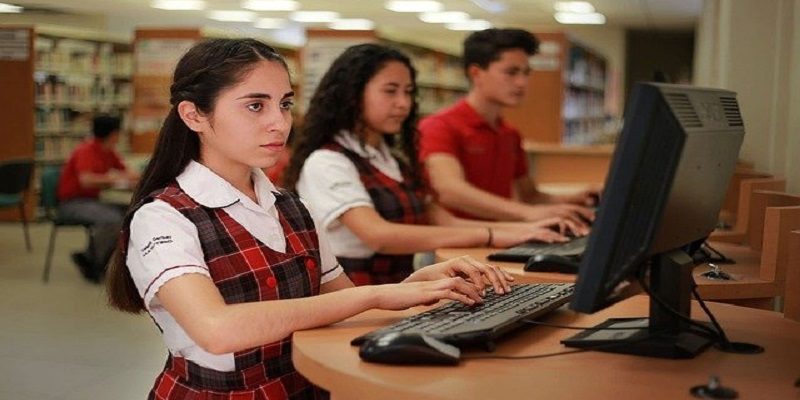The pandemic brought a transformational shift in our economic and social environments, but perhaps the most significant shift was the evolution of our education ecosystem. Speaking at a select media roundtable, Navtez Bal, Executive Director at Microsoft India, Dr. Biswajit Saha, Director–Skills and Training, CBSE, along with Bhupinder Gogia, Principal of Sat Paul Mittal School, and Paramjeet Kaur Dhillon, Principal of Kamla Nehru Public School discussed the role of technology in enabling learning continuity and shaping the future of education in India. The discussion focused on the need for creating inclusive, engaged, and accessible classrooms with technology, that ultimately enables every student to participate equally.
Microsoft is deeply invested in the digital transformation of the education eco-system in India, working closely with policymakers, schools, teachers and students to transform learning outcomes with technology. Recently, CBSE collaborated with Microsoft to introduce coding and data sciences in school curriculum.
Excerpts from the discussion:
Technology-enabled learning continuity:
Speaking at the roundtable, Navtez Bal, Executive Director, Microsoft India, said, “The World Economic Forum estimates that more than 1.2 billion children in 186 countries got affected by school closures due to the pandemic. Technology played a pivotal role in maintaining learning continuity at this time and is enabling schools, teachers, and students around the world to do more than ever before. At Microsoft, our aim is to create immersive and inclusive experiences that inspire lifelong learning, stimulate the development of essential life skills, and support educators in guiding and nurturing student passions.”
Dr. Biswajit Saha, Director-Skills and Training, CBSE, said “The future of education lies in addressing the challenge to equity and access. Technology forums or emerging areas of technology have brought about a turning point in the Indian education system. Accelerated by the pandemic, it is for everyone to see how technology is playing and driving the systems and processes of education. It is also necessary to place impetus on the process of curriculum development as we adopt and adapt as per the requirements of the industry. To build a tech-savvy education hub in India, the private and the public sector need to come together and drive the technologically enhanced curriculum under the ambit of twenty-first century skills. A technologically enhanced learning ecosystem is needed to move to an outcome-based approach to gauge where and how education is truly being delivered to solve gaps in equity.”
Bhupinder Gogia, Principal of Sat Paul Mittal School said, “To make learning engaging during the pandemic, we leveraged technological tools including Microsoft’s solutions for virtual classes and to collaborate. The pandemic taught us to be open towards the idea of accepting answers from students on platforms including both online and offline. We realized not every child is confident about voicing their opinions in an offline class, so we gave them the option to record their answers and share it with us through various formats such as podcasts, presentations, Minecraft etc. This is helping our students to learn and engage in the personalized ways that they would like to be educated.”
Paramjeet Kaur Dhillon, Founder Principal of Kamla Nehru Public School said, “We started preparing as early as December 2019. We called the parents, we downloaded Microsoft Teams on their mobiles. Our teachers were already empowered and we prepared our lessons using OneNote, and Sway and Adobe. We used all possible tech tools and we were up and about by April 2020 to manage the move to a virtual classroom. I strongly believe that empowered educators lead to engaged classrooms. We have efficiently leveraged technology as the hub of learning, enabling accessibility in education, implementing gamification and I’m proud to say that we have AI learning in addition to design thinking, web designing, multimedia, etc for our students.”
Future of Education:
Navtez Bal, Executive Director, Microsoft India said “It is great to see educational institutions adopting technology at scale and training students and educators to be future-ready and at the same time the efforts the government and CBSE are taking to ensure our students are ready with the right balance of curriculum and skills by creating flexibility and making this more fit to an individual student rather than having a one size fits all approach.”
Dr Biswajit Saha, Director–Skills and Training, CBSE said, “I think we have all witnessed, and my colleagues from schools will agree, there has been an exponential tech-enabled effort carried out during the pandemic. So, whether it is education or your personal life, everything was connected with technology and geared up the technology-enhanced learning in the ecosystem. The NEP was also a positive out-thrust and was aligned towards how we can promote the hybrid model of learning and ensure we enable educational equity at scale and not just limiting it to the pandemic.
While students learned how to utilize technology and devices for their homework, and how it helped to address or create some curiosity-based questions for the teachers. Now, the students and parents get the opportunity to interact with the teachers for doubt-clearing sessions by creating their own collaboration link based on availability. So, the learning process has undergone a major shift in the last few years which has led to multiple challenges, but the education ecosystem came together to enable learning continuity for students across the country and the world”.
Bhupinder Gogia, Principal of Sat Paul Mittal School highlighted that “Online teaching and blended form of learning will be critical. Also, ensuring learning outcomes are personalized, so that students can go back and read what they want to from the recordings. We also would like to see more of accessibility tools being used for creating catering to people with disabilities and to make learning easy for students. In addition, the teachers are the ones who define the school, they are the most important workforce. We need extensive workshops for teachers as well to ensure we have the right skills to navigate the future of learning.”
Paramjeet Kaur Dhillon, Founder and Principal of Kamla Nehru Public School said, “It is a given that we require a blend of the online and offline form of learning as a way forward. Considering every student is inclined towards technology, there should be a balance of preference, and how they want to learn. In line with this, if change has to happen it is with empowered educators, so we also need to ensure that we have more certifications, and workshops in place so that our teachers are able to prepare the same way our students prepare for board examinations.”








